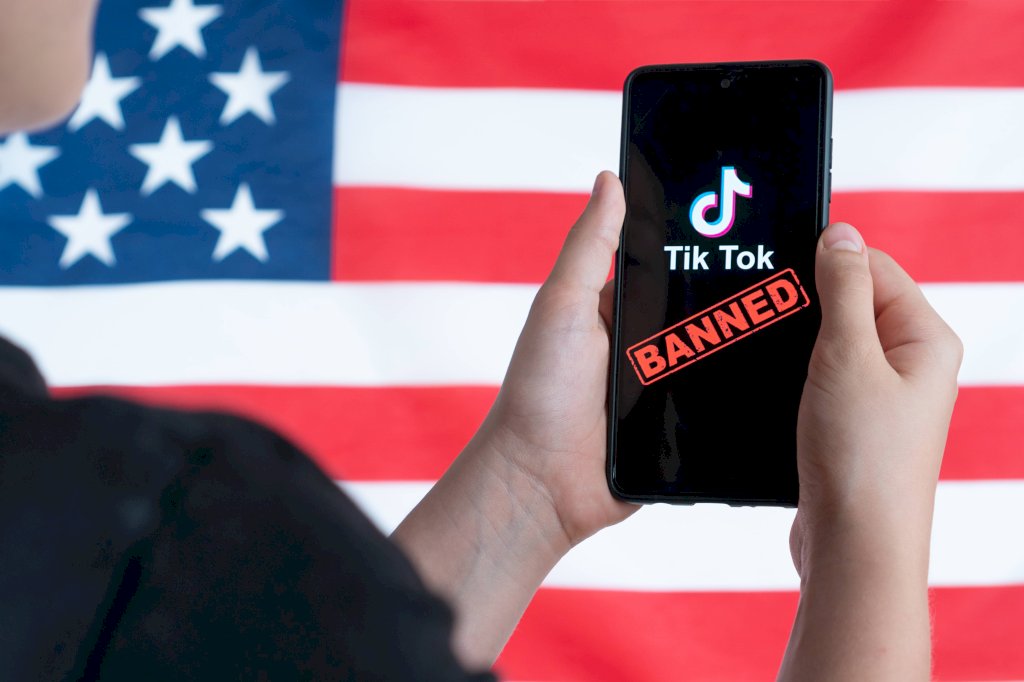“Montana Governor bans Tiktok” is surely shocking information for Montana residents
That’s true, Montana became the first state in the United States to prohibit TikTok when Republican Gov. Greg Gianforte signed the bill into law on Wednesday, May 17.
The governor also approved laws preventing mobile app stores from providing the Tiktok app within the state by the beginning of next year. This law, anticipated to enter into force in January 2024, will likely face challenges.
Gianforte also banned using social media programs on government-issued devices that collect and reveal personal information or data to other nations. He listed WeChat, whose parent firm is based in China, and Telegram Messenger, created in Russia.
TikTok is one of the world's fastest-growing social networks that appeal to over 100 million US users. Thoughts remain about how such restrictions will be implemented and their influence on US users.
The action is one of the most drastic in a string of US reprisals against TikTok, which is controlled by the Chinese tech firm-ByteDance. TikTok's ties to China have come under increased investigation, with concerns that such relationships could represent a national security threat.
Shou Zi Chew, TikTok's CEO, was asked to explain his company's relationship with China at a bipartisan congressional hearing in March, with lawmakers also questioning the CEO on the social network's influence on young people's mental health.

In March, Gianforte blocked TikTok from Montana government devices. The federal government and more than half of US states have prohibited the app from being used on government devices, and the Biden administration has threatened a countrywide ban until its parent firm sells its shares.
"To protect Montanans' personal and private data from the Chinese Communist Party, I have banned TikTok in Montana," Gianforte posted on Twitter.
Montana's latest law about Tiktok prohibition is going to go into force on January 1, 2024. According to a news release from the governor's office, fines will be enforced by the Montana Department of Justice, and anyone who violates the law faces a penalty of $10,000 per violation for each time someone "is offered the ability" to access the social media platform like Tiktok or download the app, plus an additional $10,000 for each day the violation continues.

Montana is anticipated to face challenges when prohibiting Tiktok
Montana's ban is expected to be challenged in court and it will serve as a test case for the TikTok-free America that many national lawmakers have imagined.
Montana was the first state to approve legislation prohibiting TikTok, leading to questions among technology experts about how feasible enforcement expectations were.
TikTok said in a statement to CBS News: "Governor Gianforte has signed a bill that infringes on the First Amendment rights of the people of Montana by unlawfully banning TikTok, a platform that empowers hundreds of thousands of people across the state,"
"We want to reassure Montanans that they can continue using TikTok to express themselves, earn a living, and find community as we continue working to defend the rights of our users inside and outside of Montana" TikTok added. TikTok said in a statement that the Montana bill infringes on the first amendment rights of the people of Montana by unlawfully banning TikTok.
An allegation that TikTok has shared users' private data with the Chinese government is strongly denied by Bytedance. Also, if requested to reveal the user's confidential data, Bytedance has stated that they will not do so.
At a bill hearing in March, a TechNet representative stated that app stores do not have the ability to geofence apps on individual states, causing the restriction to be ineffective in popular app marketplaces such as the Apple App Store or the Google Play App Store.
Opponents argue that the proposal is excessive government intervention and that Montana citizens may easily avoid the prohibition by using a virtual private network. This service protects internet users by encrypting their data traffic, making it impossible for anyone to monitor their web browsing. Meanwhile, internet freedom groups and others have considered this new law as US censorship.

It is also claimed that prohibiting the app would violate users' First Amendment rights. According to Jameel Jaffer, executive director of Columbia University's Knight First Amendment Institute, "Because Montana can't show that the ban is necessary or tailored to any legitimate interest, the law is almost certainly unconstitutional."The legislators, according to Keegan Medrano, policy director for the ACLU of Montana, "trampled on the free speech of hundreds of thousands of Montanans."

-1691743158.png)